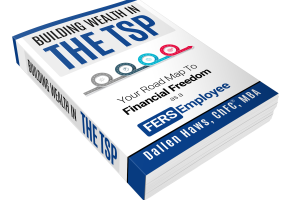FEHB is an incredible benefit you have as a federal employee and it certainly up there with one of your most valuable benefits.
But most federal employees are leaving money on the table by not understanding all the FEHB rules and options.
Here are the 5 best FEHB strategies to help you understand and maximize this great benefit.
Here is the 1st Question to Answer
Why do you have the plan you currently have?
Was it simply what everyone else seemed to have? Was it because your favorite providers accept it? Does it cover all your medications? Or maybe you made the decisions years ago and just haven’t gotten around to taking another look at it.
Regardless of the reason, today is a great time to reassess especially if you are reading this in or before open season (Nov-Dec).
Here are some the best tools to compare plans to see what makes sense for you
Strategies While You Are Working
While you are still working, here are the most important things to understand.
First of all, the government pays about 70%-75% of your FEHB premiums. That means you would have to pay about 3x more if you were paying for it all by yourself. This is one of the reasons why it is such a valuable benefit.
Note: The government continues to pay the same percentage of your premium even once you retire.
But What if My Spouse Has a Cheaper Plan at Their Job?
Even with the government paying a high percentage, there are some private employers who cover more.
So if your spouse has access to a cheaper plan you may be tempted to drop FEHB and move to theirs.
That may be the best option but here are the things to consider 1st:
Are you within 5 years of retirement?
To keep FEHB into retirement you have to be covered for the 5 years before
retirement. So even if your spouse’s plan is cheaper you may want to be covered by FEHB to keep the benefit in retirement.
Note: Some people are surprised by changing life circumstances or health issues that make them want to retire sooner than expected so make sure you are prepared!
Can they keep their plan into retirement?
Many private employers cover most of the cost of health insurance while someone is working but then cut back once they retire.
You want to make sure you understand how your spouse’s plan works before you decide to jump all into their plan. Also, if your spouse passes, are you able to stay on their plan?
What if My Spouse is Also a Federal Employee?
If both you and your spouse are federal employees then you have the option to both be on one self+1 or family plan or you can both get a self-only plan.
The latter option can make a lot of sense when one spouse has a lot more medical needs than the other spouse.
This way you can find a more comprehensive plan for one spouse and a cheaper plan for the spouse with less needs.
FSA/HSA (Save Money and Taxes)
Both FSAs and HSAs can be a great way to save money and lower your taxes for health care expenses that you are going to pay for anyway.
And here is an article/video that walks you through how they work.
Don’t Pay for Dental/Vision Twice!
As you probably know, the government has FEDVIP (Dental and Vision Insurance) options on top of FEHB.
These options can be helpful but many people don’t realize that their FEHB often covers some dental/vision costs.
Because of this some people accidentally get Dental/Vision insurance to cover things that are already covered by their FEHB plan. Which means wasted money!
Now I am not saying that no one needs Dental/Vision insurance but you should certainly check your FEHB to see what it covers.
Or you can search for a new fehb plan that might cost about the same as your current plan but covers your Dental/Vision needs.
FEHB in Retirement/Medicare
As long as you are eligible to keep FEHB into retirement (by being covered the 5 years before retirement), then I have good news.
You can keep FEHB for the rest of your life and the government will continue paying 70%-75% of the premiums.
And as long as you select a survivor benefit for your spouse, they can also keep your FEHB for the rest of their life if you die first.
No More Tax Benefit
However, the one change that does happen in retirement is that you can no longer pay FEHB premiums with pre-tax dollars.
Basically, during your career you get a tax deduction for any amount you paid for FEHB premiums but you don’t get this deduction once you retire.
So while the price of your plan may stay the same, it will actually cost slightly more in taxes.
What About Medicare?
Medicare is a big part of retirement and you want to make sure you understand how it works with FEHB.
This article walks you through whether you need both Medicare and FEHB in retirement.


